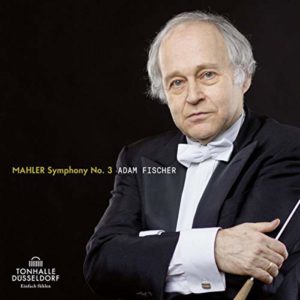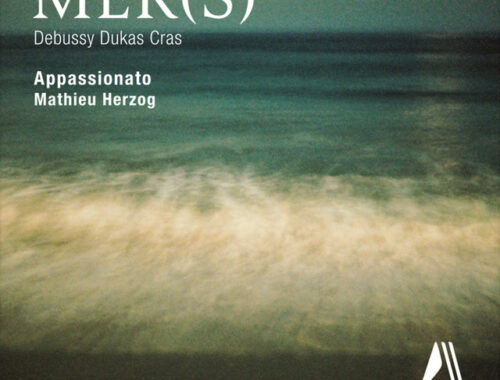GRAMOPHONE Review: Mahler Symphony No. 3 – Larsson, Düsseldorfer Symphoniker/Fischer
 Eight unison horns dramatically announce Mahler’s pantheistic hymn to the natural world and if the opening bars of Adam Fischer’s refreshingly spontaneous account sounded a tad jaded to my ears it was almost certainly because I cannot easily hear those measures without recalling Leonard Bernstein’s electrifying 1961 account – the very first of his New York cycle to be released and still the finest. One of the great Mahler performances of the last half century.
Eight unison horns dramatically announce Mahler’s pantheistic hymn to the natural world and if the opening bars of Adam Fischer’s refreshingly spontaneous account sounded a tad jaded to my ears it was almost certainly because I cannot easily hear those measures without recalling Leonard Bernstein’s electrifying 1961 account – the very first of his New York cycle to be released and still the finest. One of the great Mahler performances of the last half century.
Technology has moved on, of course, and the sound of this brand new Dusseldorf cycle – so impressive in every instalment to date – is certainly an advance on the Bernstein though not perhaps Manfred Honeck’s sonically spectacular Pittsburg account of this symphony on Exton or indeed Riccardo Chailly’s Royal Concergebouw version on Decca. That said, the deep growling recesses of Mahler’s flabbergasting first movement are impressively chronicled as summer’s jaunty march sweeps aside all the darker strains of shuddering string basses and dinosaural trombones with its raucously reedy winds and rattling percussion. Fischer makes something really outrageous of the Ivesian development section culminating as it does in the passage affectionately dubbed “The Rabble”, but above all it’s his ‘improvisatory’ way with phrasing and rubato which sounds so authentically Mahlerian and is time and again testament to the almost telepathic communication between this conductor and his players. He maximises the effect of the euphoric final pages of the first movement by opening up the big rhetorical moments and not sparing the horse-power in the frenetic closing presto.
Mahler’s flora and fauna then come vividly alive in the inner movements, the ‘flower’ movement nuanced with real Viennese charm and the rampaging wild life of the third movement whipped up in marked contrast to the magical offstage postern solos where all nature seems simply to stop and listen. The soloist Frank Ludemann keeps those solos simple and true – and thus all the more moving.
Anna Larsson is truly the voice of wisdom and experience in the Nietzsche setting, the perfect colour, though Fischer adopts the now received wisdom that the oft-repeated rising semitone in oboe and cor anglais (‘a sound of nature’) should be played (according to the instruction ‘drawn upwards’) as a glissando. I still think that had Mahler wanted a glissando he would have marked one as he did elsewhere in his scores (Bernstein, incidentally, would have none of it) – and my problem remains that this awkward effect draws so much attention to itself that you cease listening to anything else.
Fischer writes most eloquently in the liner note about how his preference would instinctively be always to use gut strings in Mahler and specifically here in the great final adagio ‘What Love tells Me’. But even without them he achieves what he describes as a ‘softness’, a phrasal fluency that makes for a more personal, intimate feel. He did just this in the slow movement of his recent Fourth, eschewing the bigger Mahlerian sonority and protracted tempo for an expressivity that was entirely achieved in the phrasing and not the vibrato.
Perhaps, though, there is a price to be paid for this appreciable ‘scaling down’ of intent in this final movement. There is a cosmic dimension to this music, a culmination of everything that has gone before – and in that there is no question that only a Bernstein’s breadth of vision ultimately leads you onwards and upwards towards the transcendental.
You May Also Like

A Conversation With WILL TODD
02/09/2010
GRAMOPHONE Review: MERS(S) Debussy Dukas Cras – Appassionato/Herzog
22/04/2024

